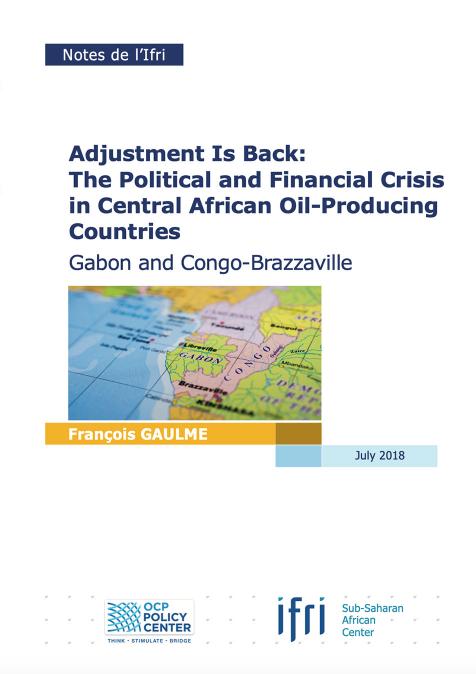Publications /
Policy Paper
This paper aims to highlight both the financial, economic and political adjustment cycle, affecting two Central African petro-states, Gabon and the Republic of Congo (Congo-Brazzaville). These two countries, linked by their rentier economic system and their common colonial history, have nevertheless experienced different political fates after independence, with the former maintaining a special relationship with France, while the latter quickly opted for Marxism. In the 1980s and 1990s, they were both subjected to structural adjustment, initially economic and financial, and then political, after the collapse of the USSR and the dissolution of single-party systems in Africa. Nowadays and since the 2015 oil crisis, they have been subject again to a second adjustment of their public finances under the control of the International Monetary Fund (IMF). At the same time, their “hybrid” presidential regimes are challenged from within: the spectre of the civil war in the 1990s still weighs on the public arena in Congo, while the dynastic succession in Gabon has led to a lasting stalemate in the national dialogue. A new cycle of democratization is still only one scenario among others, which is relatively unlikely in the current situation, despite growing social discontent and the economic crisis in both countries.



